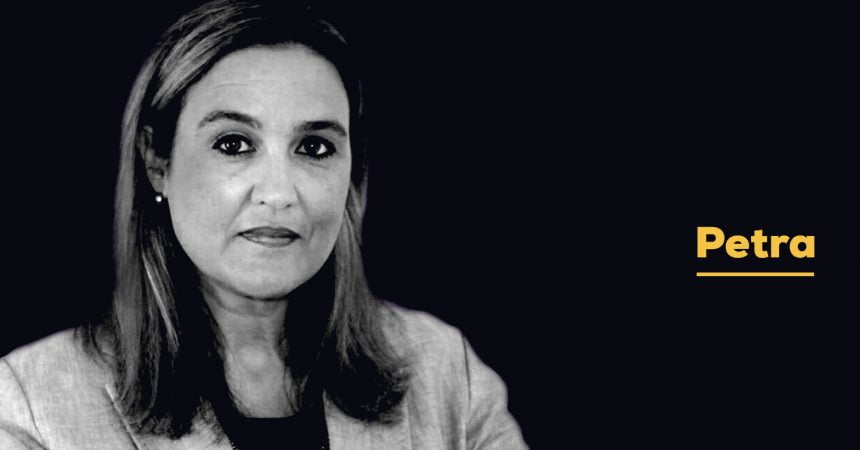Two of our very few, experienced women politicians are on their way out of the Maltese Parliament – Helena Dalli and Marlene Farrugia. Two seats might not sound like much, but Malta’s House of Representatives currently only has 10 women MPs in total.
If Helena Dalli becomes EU Commissioner for Equality next month, which seems likely, she will leave parliament. She has already been replaced in Cabinet by Edward Zammit Lewis.
The current Cabinet has 24 members, besides the Prime Minister. That means that 65% of the 37 Labour Party (PL) members of parliament are ministers or parliamentary secretaries.
This also means that, besides the Opposition, only 12 MPs on the government side are backbenchers, whose role it is to hold the Executive to account (which they consistently fail to do). And most of them anyway enjoy additional positions on the government payroll or are hoping for Cabinet positions in future. Quietly toeing the line has its rewards.
With the departure of Helena Dalli, only two Cabinet members are now women – Justyne Caruana and Julia Farrugia Portelli. The rest are all men. And, excluding Helena Dalli, only one PL backbencher is a woman, Rosianne Cutajar. Women have had the right to vote in Malta since 1947, which is 70 years now, but women are still poorly represented in parliament.
This week, opposition backbencher Marlene Farrugia announced her resignation from the Democratic Party, which she was instrumental in founding. She also said that she will not contest the next general election.
It will be a pity to see her go. Parliamentary debates often present boring, synchronised singing from approved hymn sheets. In this scenario, Marlene has been a vocal, irreverent, gutsy, and effective presence in parliament. She catches attention and draws people into debates. Her departure from politics means one experienced and strong woman politician less. But the country needs more women representatives, not less.
This unexpected announcement by Marlene Farrugia, together with her fellow MP and partner Godfrey Farrugia, took many people by surprise. Are they burnt out, angry, tired, frustrated or threatened? Whatever it is, the vibes are not good.
Looking back, a bizarre episode in Marlene’s parliamentary history as a successful female MP, occurred after the 2013 election. In the run-up to that election Joseph Muscat, then leader of the Opposition, had told the Farrugia couple that they could not both expect a Cabinet position. In the eventuality of the PL getting into government, only one of them could be appointed Minister.
When the Health Ministry was assigned after the electoral victory, it was Godfrey who was given the ministerial role. But Marlene was also brought on board. Having forfeited any potential Cabinet position, she took on the role of ‘ministerial aide’, working in an unpaid voluntary role alongside Godfrey as Health Minister.
Marlene has proved herself to be a courageous, independent, determined woman, and needs no defence on that count. She is certainly not a soft pushover. The role models for female success in Maltese politics are few, but she is one of them.
Still, it is harder to picture a situation where a woman would be given the top job of Health Minister, while her male partner, also a popular MP and a medical professional, is denied a Cabinet position and instead gets a role as her unpaid ‘ministerial aide’.
If anyone imagines that gender equality has been achieved in public life here, just think of the pitiful number of women in executive roles in Cabinet – two women and 22 men. For one reason or another, women fall along the wayside and do not get there, with Marlene’s story possibly the oddest of all.
We all know how that health ministry episode turned out. Marlene’s installation as a sidekick was strongly criticised, and she soon abandoned that role. After just one year, Godfrey was succeeded by Konrad Mizzi as Health Minister. This made way for the Vitals Global Healthcare deal negotiated by Mizzi.
Marlene was then appointed Head of the parliamentary Environment and Development Committee, and she did some good work there. For a start, she opened up the committee meetings to civil society. This was a big step towards transparency and wider participation, and should not be taken for granted.
Having experienced the attitude of the current Chairman of this committee, MP Alex Muscat, I would not be surprised if this practice is soon reversed. The agenda of the committee is gradually being restricted and stifled.
The government plans to introduce a ‘corrective mechanism’ to create a more balanced share of men and women in parliament. As I have said elsewhere, I support positive action for gender balance on Party lists of candidates, changing the choice for voters. But I am still sceptical about aspects of this proposed corrective mechanism. I stand to be convinced.
Probing slightly deeper, the real question is whether Maltese backbench MPs, including women, truly have much influence over decisions or executive power at all. Even if better gender balance is achieved, attending parliament is one thing but being where decisions that matter is taken, is another.












